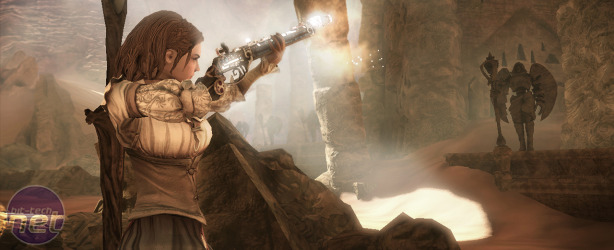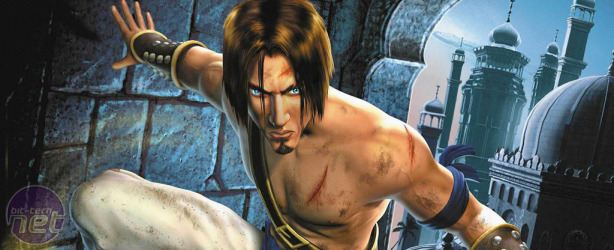
The Fable State
Fable II used the immortal state with questionable results. It’s an action RPG in which there simply isn't a death state, which inevitably means no real conflict in a fight. I complain about the fail state, but this is worse. Combat needs danger associated with it to drive excitement, and removing that only makes combat feel redundant. The immortal state has its place - where a death state isn’t going to achieve anything or seems out of place, fine - but it can’t form the backbone of a conventional RPG.The opposite of the immortal state is the persistent state, which is where death is the end for someone - there's no respawn or reloading, that’s it. You’re done. It’s either back to the start with you (or skip to the end, as in One Chance), or it’s the complete death of a character over which you had control.
Done in one way, the persistent state is just a big fail state, but it’s at least always at one with the narrative. Steel Battalion springs to mind - the giant controller mech game for the original Xbox. When your mech went down you had a couple of seconds to flick the safety cap off an eject button, and fling your character to safety while your mech blew up. If you weren’t out in time then that’s it - your character was dead and you went back to the start.
Squad-based offerings are a little more forgiving with this sort of thing. If we look back to X-Com, Rainbow 6 and Hidden and Dangerous, when team members died they were gone, but they were also generally replaceable. It’s an emotional play - these people inevitably gain character as you use them. Smith might just be a sprite, but he’s the sprite that sniped that Nazi before he managed to throw his grenade. Cannon Fodder even went the extra mile by giving each lost soldier a little gravestone on a hill - touching.
Plenty of old adventure games harshly implemented persistent death too. If we look at the old Sierra adventures, or more niche offerings such as KGB, then an error in one section could mean a persistent death cropping up hours afterwards. These sorts of death are incredibly rare now - and for good reason - but it was a product of the times.
The fail state, the respawn, the embrace, the persistent and The Immortal. All have their place, but none of them work for ‘The Common Game’ in which the death state is punishment for failure. If you asked me which I’d want to be in the next Half-Life game, I’d say none of them, but death in some form needs to be included lest we hit the Fable II situation. If you’re looking for an answer, I’ll come right out and say I don’t have one - but that’s not to say that there isn’t one.
Death shouldn’t mean the player is just annoyed, it should have more substance. Maybe it could mean a mission is failed, leaving the player free to progress while still losing out on something? Or they can ‘go back’ to the mission, but security is increased due to their previous attempt? Or procedural level generation so they can go back and 'try a different route.' I don’t know. What can’t happen, though, is to continue endlessly with the fail state as we do now, because that will be the death of all of us.

MSI MPG Velox 100R Chassis Review
October 14 2021 | 15:04











Want to comment? Please log in.